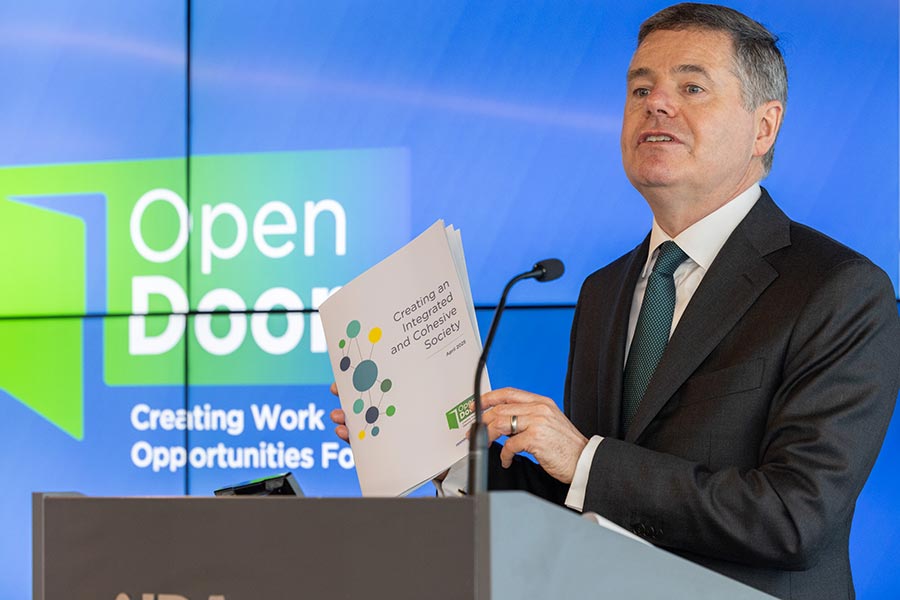Is the Economy’s Tepid Growth in Q2 a Temporary Setback—or the Calm Before a Financial Storm?
Ever wonder what happens when the gears of globalization and domestic hustle grind against each other in the economy’s engine room? Well, Ireland’s latest GDP numbers—up a modest 0.2% in Q2—paint a picture of just that kind of push and pull. Multinationals, especially those shiny tech and pharma giants, flexed their muscles with a 1.1% boost, while local sectors took a slight hit, shrinking 0.1%. Construction and industry showed some serious muscle (+6% and +2.5%, respectively), but don’t get too excited yet—professional services and financial activities slid backwards. Amid all this, domestic demand quietly inched up 0.6%, signaling folks are still spending and wages are growing. But with exports slipping and trade tariffs looming like dark clouds on the horizon, it’s clear the economy’s path won’t be straightforward. Intrigued? Dive deeper into the full breakdown and see what it means for the road ahead. LEARN MORE
Gross domestic product (GDP) grew by 0.2% in the second quarter, new Central Statistics Office (CSO) figures show.
Multinational-dominated sector such as technology and pharmaceuticals grew by 1.1% while domestic sectors contracted, decreasing 0.1%.
While sectors like construction (+6%), industry (+2.5%) and information & communication (+1.8%) grew noticeably, professional, administration & support services (-4.9%) and financial & insurance activities (-3.4%) both contracted.
Modified domestic demand, which measures underlying domestic activity and covers personal, government and investment spending, grew by 0.6%.
“The globalised Industry sector expanded by 2.5% in Q2 2025 compared with Q1 2025 while the Information & Communication sector posted an increase of 1.8% over the same period. Overall, the multinational-dominated sector rose by 1.1% in the quarter,” said Chris Sibley, assistant director general with responsibility for national accounts & price statistics at the XSO.
“There was continued growth in the domestic economy in Q2 2025 with Modified Domestic Demand (MDD) growing by 0.6% in the quarter.
“This was reflected in personal spending increasing by 1.0% and growth in wages of 3.7% over the same period.”
Personal spending on goods and services, a key measure of domestic activity, grew by 1% while government expenditure increased 2.5%.
Exports decreased 4% or €8.7bn from the first quarter, driven by a decline of 8.5% or €9bn in goods exports.
Dr Loretta O’Sullivan, chief economist at EY Ireland, said the figures were further evidence of the rush by businesses to get ahead of US tariffs.
“Tariff front-running by the pharmaceutical sector in particular buoyed exports and GDP in the first quarter of 2025, but this activity moderated somewhat in the second quarter,” said Dr O’Sullivan.
“Looking past these trade-related distortions and at domestic indicators, it is encouraging to see that record high employment is lending support to consumer spending, which expanded at a good pace in the first six months of the year.
“While a growing economy and a strong labour market are among Ireland’s many strengths, policies to shore up competitiveness and build resilience will be important in mitigating global headwinds in the period ahead.”
Minister for Finance Paschal Donohoe welcomed the figures and acknowledged the effect of frontloading exports in anticipation of tariffs.
“Looking forward, however, the international outlook remains very challenging. While the Government welcomes the degree of certainty provided by the Framework Agreement between the EU and the US on trade published last month, the imposition of widespread tariffs will, of course, weigh on growth over the coming years,” he said.

“Given the more challenging external backdrop, it is imperative that policy remains focussed on boosting the resilience of the Irish economy.
“That is why Budget 2026 will be framed around investment. This will help maintain competitiveness and boost productivity which is the foundation for long-term improvements in living standards.”















Post Comment